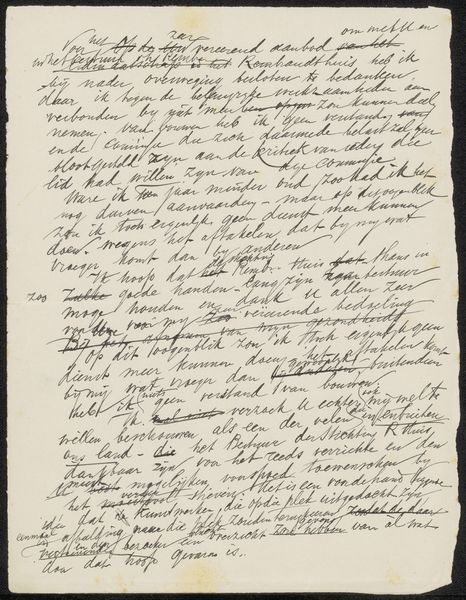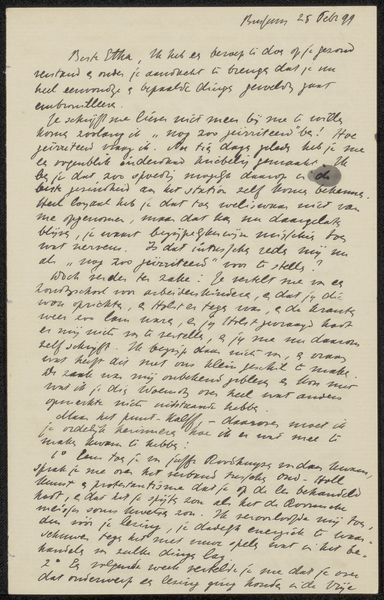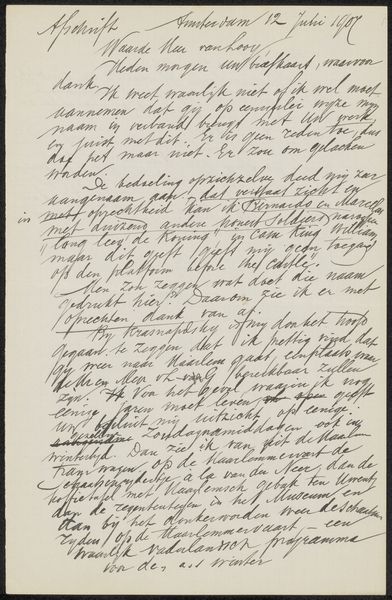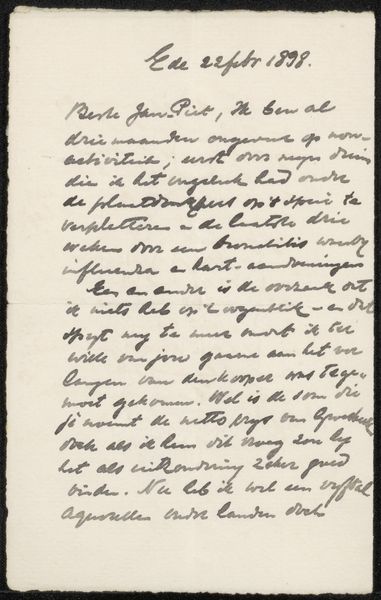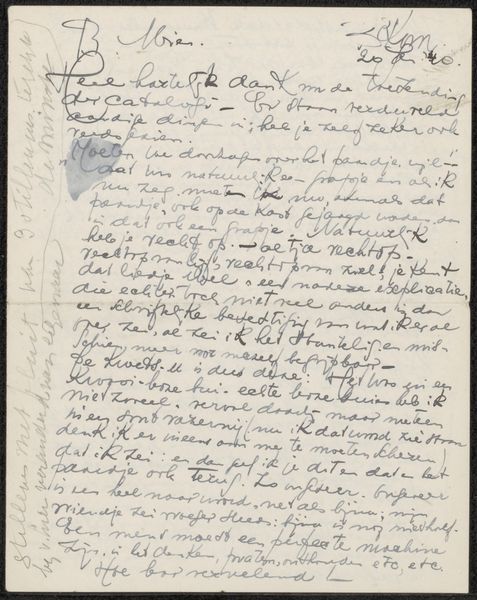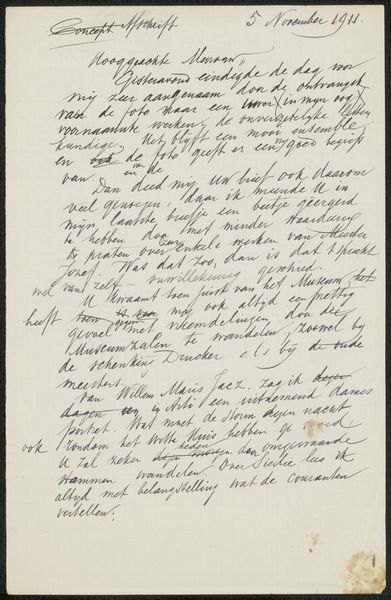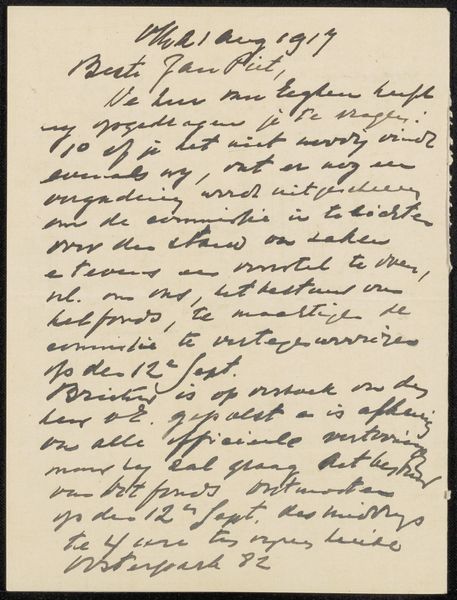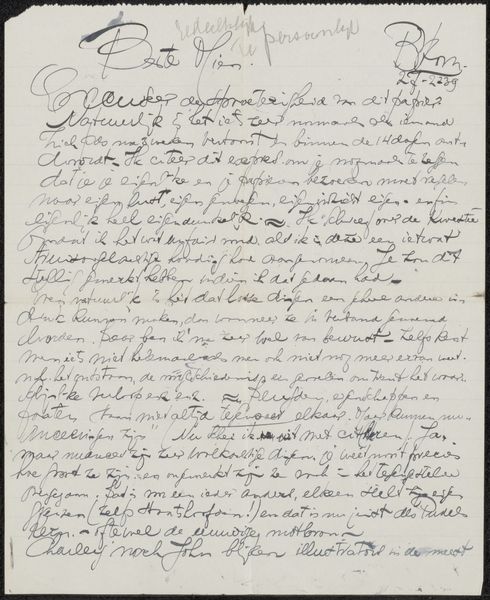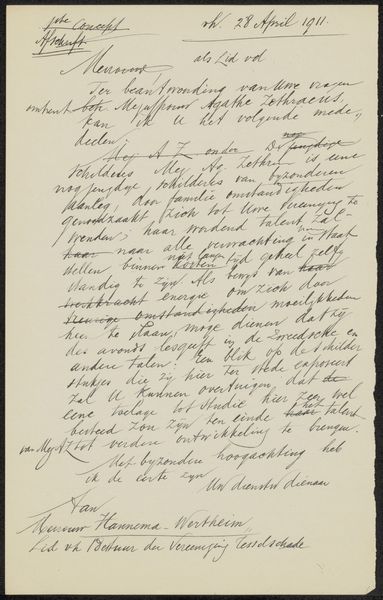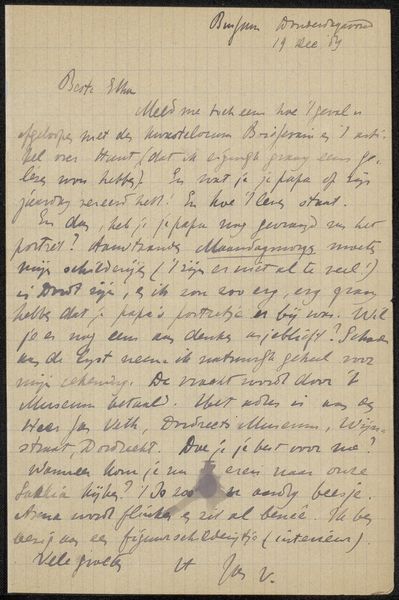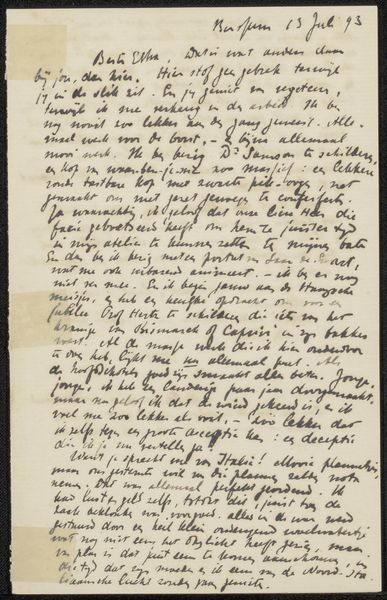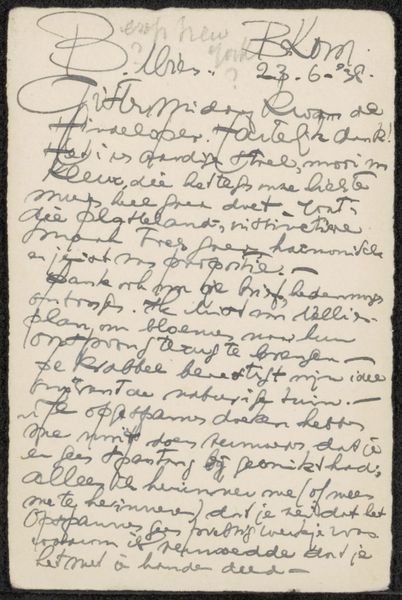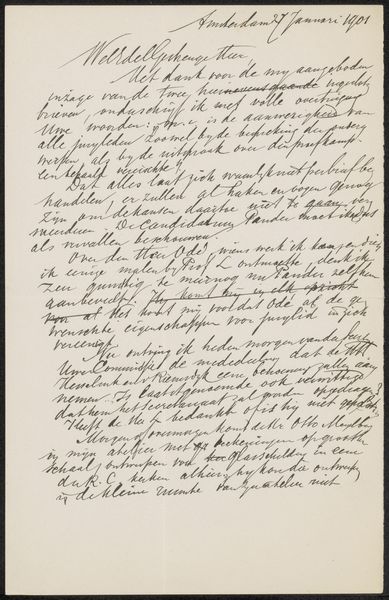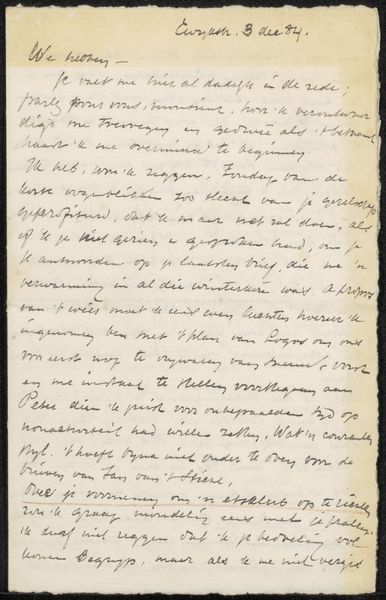
drawing, paper, ink, pen
#
drawing
#
script typography
#
hand-lettering
#
pen drawing
#
pen illustration
#
old engraving style
#
hand drawn type
#
hand lettering
#
paper
#
ink
#
hand-drawn typeface
#
pen work
#
pen
#
coloring book page
Copyright: Rijks Museum: Open Domain
Editor: This is "Brief aan de heer Olie," which translates to "Letter to Mr. Olie," possibly from 1913 by August Allebé. It's an ink drawing on paper held at the Rijksmuseum. The elegant script and old paper give it a really historical feel. What do you see in this piece? Curator: Well, at first glance, it reads like a simple correspondence. However, considering the period and Allebé's artistic circle, this letter operates on multiple levels. It reflects a dialogue about artistic materials and techniques, likely amongst artists navigating a rapidly changing art world. There is reference to 'Friends' and also chemical stability. Are these innocuous exchanges? Or reflections on cultural change? Editor: So you're suggesting it's not just a personal letter, but maybe a coded discussion about the shifting landscape of art and materials? Curator: Precisely. Think about the social and political context. The early 20th century was a period of intense social change, with anxieties around industrialization impacting artistic practice. This letter becomes a window into understanding anxieties of authorship or originality versus that of mechanical mass production. The handwritten nature is a deliberate statement! Editor: That’s interesting! It challenges my initial perception. So it is a letter that simultaneously critiques and participates in conversations of industry and what is gained and lost in that exchange? Curator: Exactly! The choice of hand-lettering over printing highlights a concern for the individual artistic touch. Also consider the role of Mr. Olie, perhaps a supplier, or an art critic? That could significantly alter the interpretation of the letter’s contents, wouldn’t you agree? Editor: Definitely. I’ll never look at a handwritten letter the same way again. It makes me wonder how much coded information we're missing in other historical documents. Curator: And how important context is for art and artists.
Comments
No comments
Be the first to comment and join the conversation on the ultimate creative platform.
